PPT Research Project Uranus PowerPoint Presentation, free download ID2374318
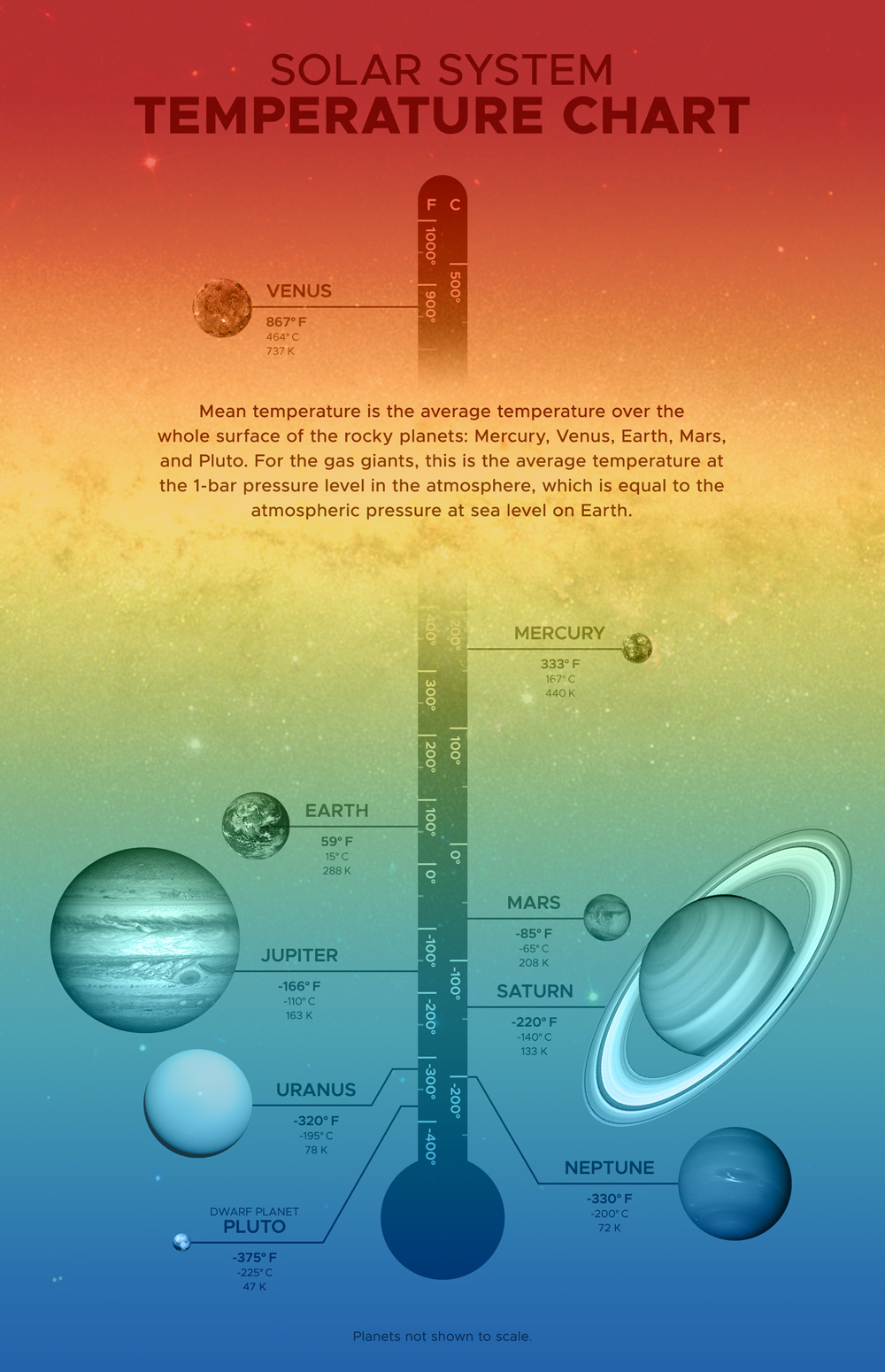
Solar System Temperatures NASA Solar System Exploration
Earth: 59°F (15°C) Mars: Minus 85°F (-65°C) Jupiter: Minus 166°F (-110°C) Saturn: Minus 220°F (-140°C) Uranus: Minus 320°F (-195°C) Neptune: Minus 330°F (-200°C) Dwarf Planet Pluto: Minus 375°F (-225°C) This graphic shows the mean temperatures of various destinations in our solar system. (Planets not to scale.)
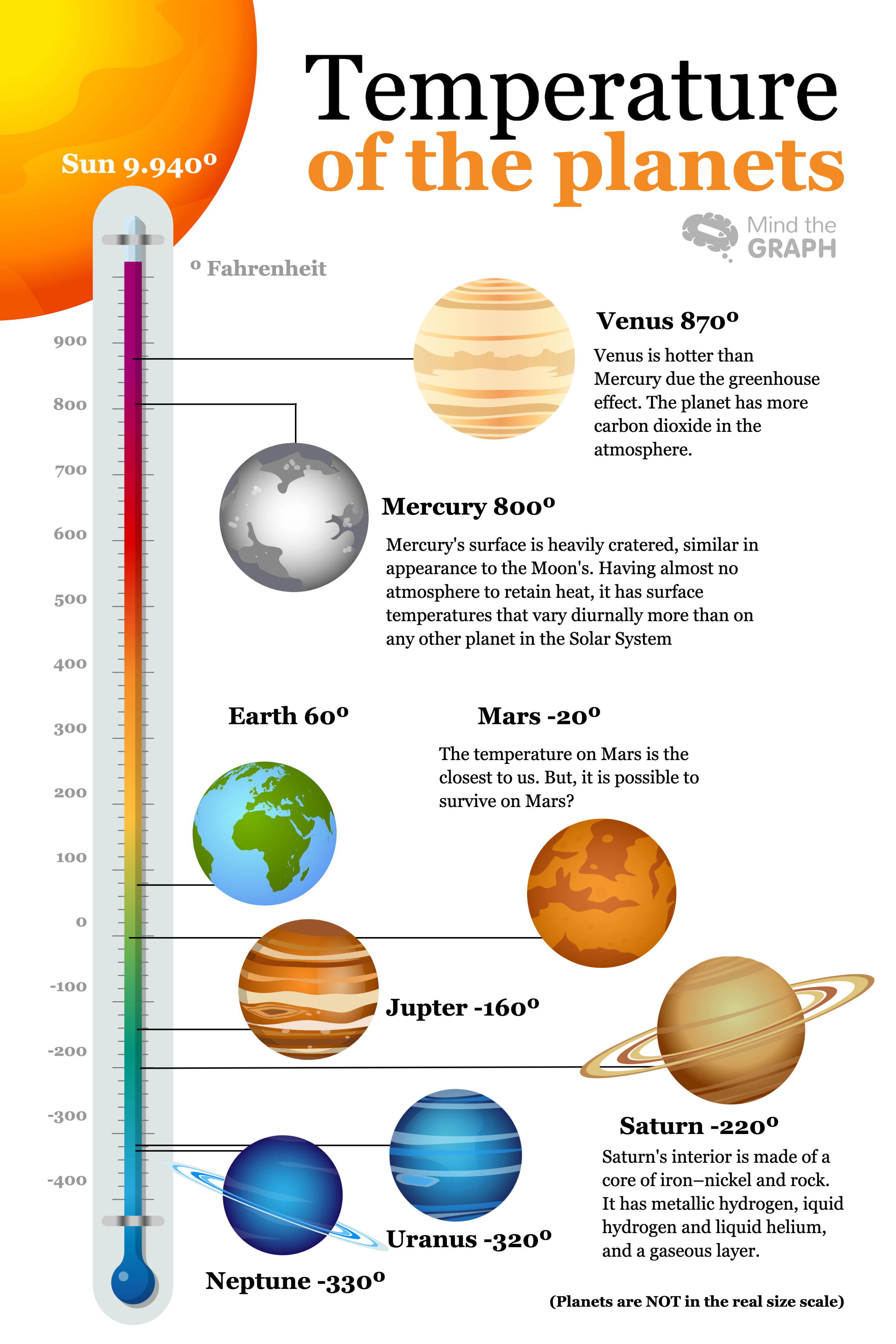
Mind the Graph Blog
The temperature on Uranus is the lowest among the planets of the Solar System. Uranus is experiencing some of the most extreme seasons in the Solar System. The equator of the planet is almost at right angles to its orbit — 97.77°. About a quarter of every year on Uranus, the sun shines directly over each pole, while the rest of the planet is.
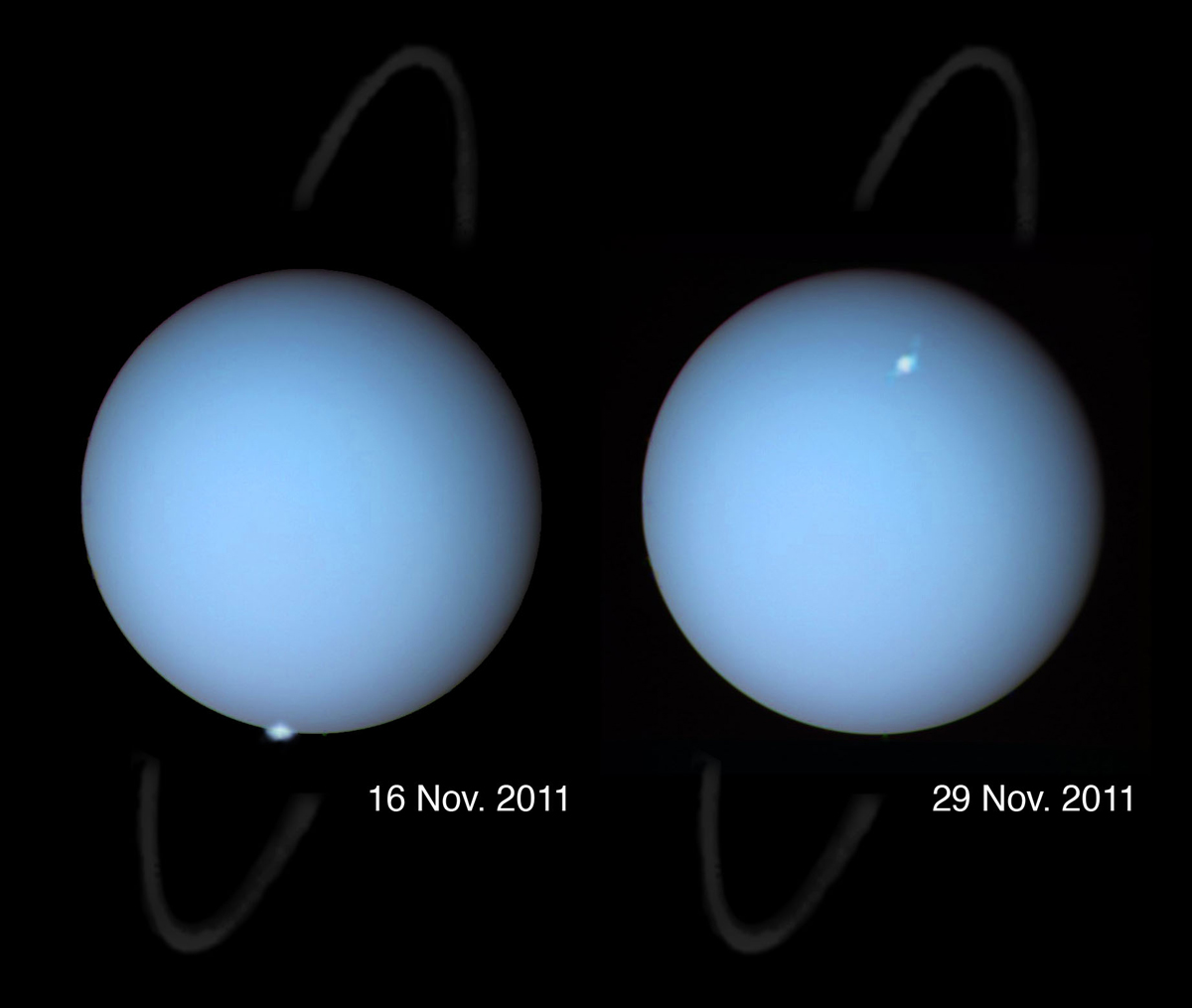
What is the Temperature of Uranus? Space
We suggest that this additional component may come from a higher proportion of methane ice particles, perhaps due to the stabilizing effects of spring and summer sunlight on the tropospheric temperature field, although no significant changes in Uranus's tropospheric temperatures since the Voyager 2 flyby have yet been detected (Orton et al.
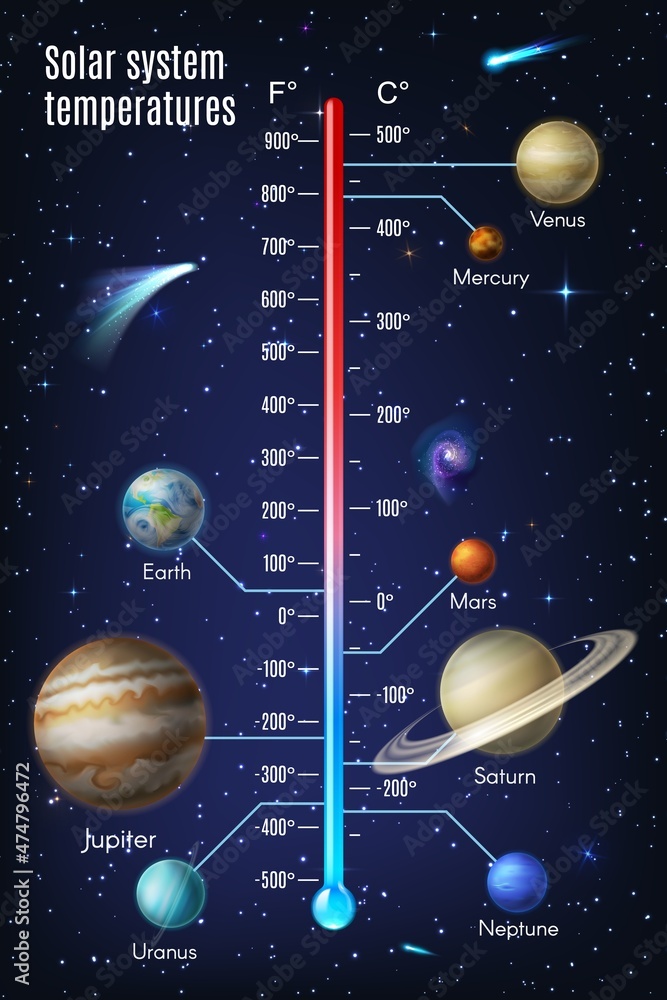
Solar system temperature infographics with realistic vector starry space and
Uranus is about 19.8 AU from the Sun. Earth = 1. A Uranian Year It takes Uranus 84 Earth years to make a trip around the Sun. Fluid Planet Uranus is mostly a mass of "icy" fluid around a rocky core. Bring a Spacesuit Atmosphere: molecular hydrogen and atomic helium with a bit of methane. Literary Moons

PPT Research Project Uranus PowerPoint Presentation, free download ID2374318
The temperature of Uranus averages minus 320 degrees Fahrenheit (-195 degrees Celsius), according to NASA. Uranus holds the record for the coldest temperature ever measured in the solar.
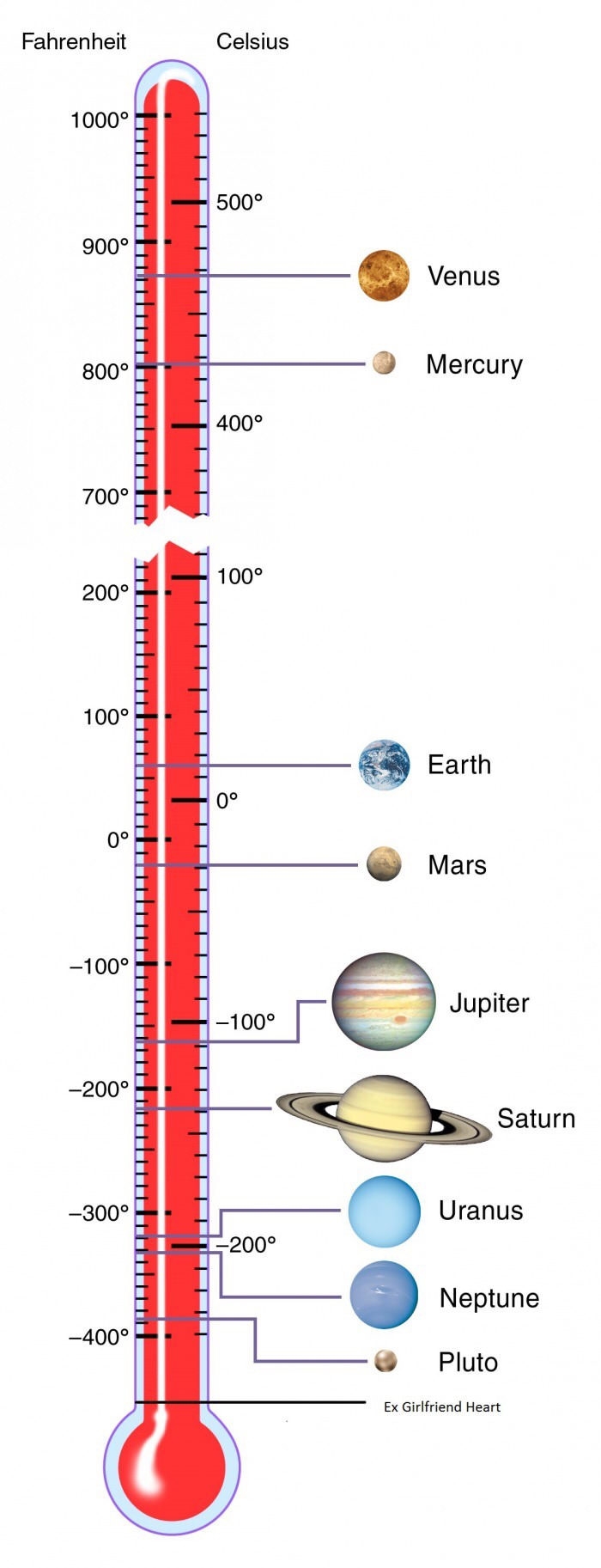
The average temperature of all the
A Uranus year is 84 Earth years, so small variations in Uranus's atmospheric temperature while the planet orbits the Sun should take place gradually. The fact that the reversal happened.
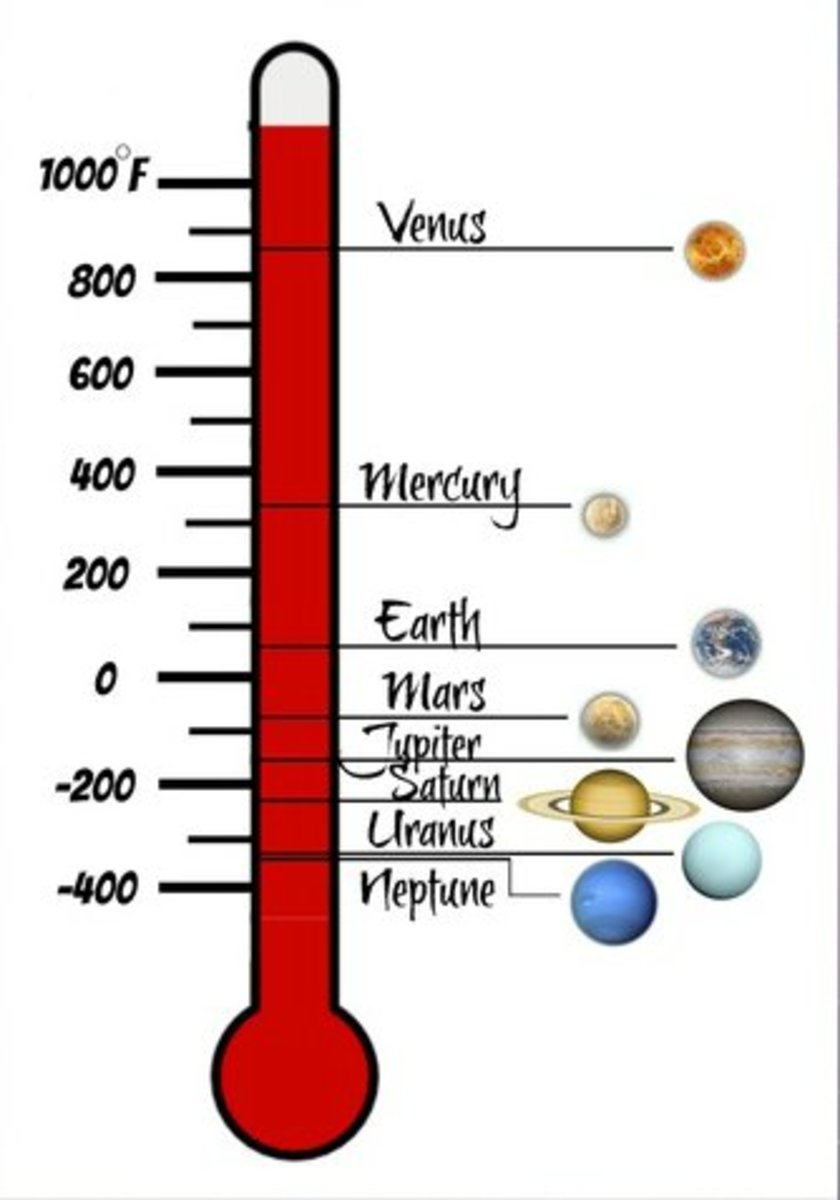
Top Ten Facts About Uranus
As such, both planets are almost the same temperature (within a few degrees) despite Uranus being 33% closer to the sun. Weather on Uranus.. If we could visit Uranus, the winds at a depth.

AstronomyForChildren What is the average temperature of the and the sun?
What is the average temperature in Uranus's atmosphere? How many moons and rings does Uranus have? What is unusual about the axis of Uranus? Two views of the southern hemisphere of Uranus, produced from images obtained by Voyager 2 on Jan. 17, 1986. In colours visible to the unaided human eye, Uranus is a bland, nearly featureless sphere (left).

Temperature & Size Anne’s Astronomy News
Uranus is the only planet whose equator is nearly at a right angle to its orbit, with a tilt of 97.77 degrees - possibly the result of a collision with an Earth-sized object long ago. This unique tilt causes the most extreme seasons in the solar system.

uranus temperature
The average temperature of the surface of Uranus is 49° Kelvin or -224° Celsius. What makes the planet so cold is that it has a low internal temperature. At its core, Uranus is only 5000° K, compared to Jupiter, which as a core temperature of 30000° K.

Temperature pressure profile measured by radio occultation in Uranus... Download Scientific
What is the Weather Like on Uranus? We understand the weather on Earth. The Sun heats the air at the equator, causing it to rise. The warm air goes to the poles, cools down and sinks, and then.

Temperature profiles for Uranus and Neptune (as labeled) adopted in the... Download Scientific
How's the temperature on Uranus? Cold. In fact, the temperature of Uranus makes it the coldest planet in the Solar System. The average temperature of the cloud tops on Uranus is 49 K (?224.
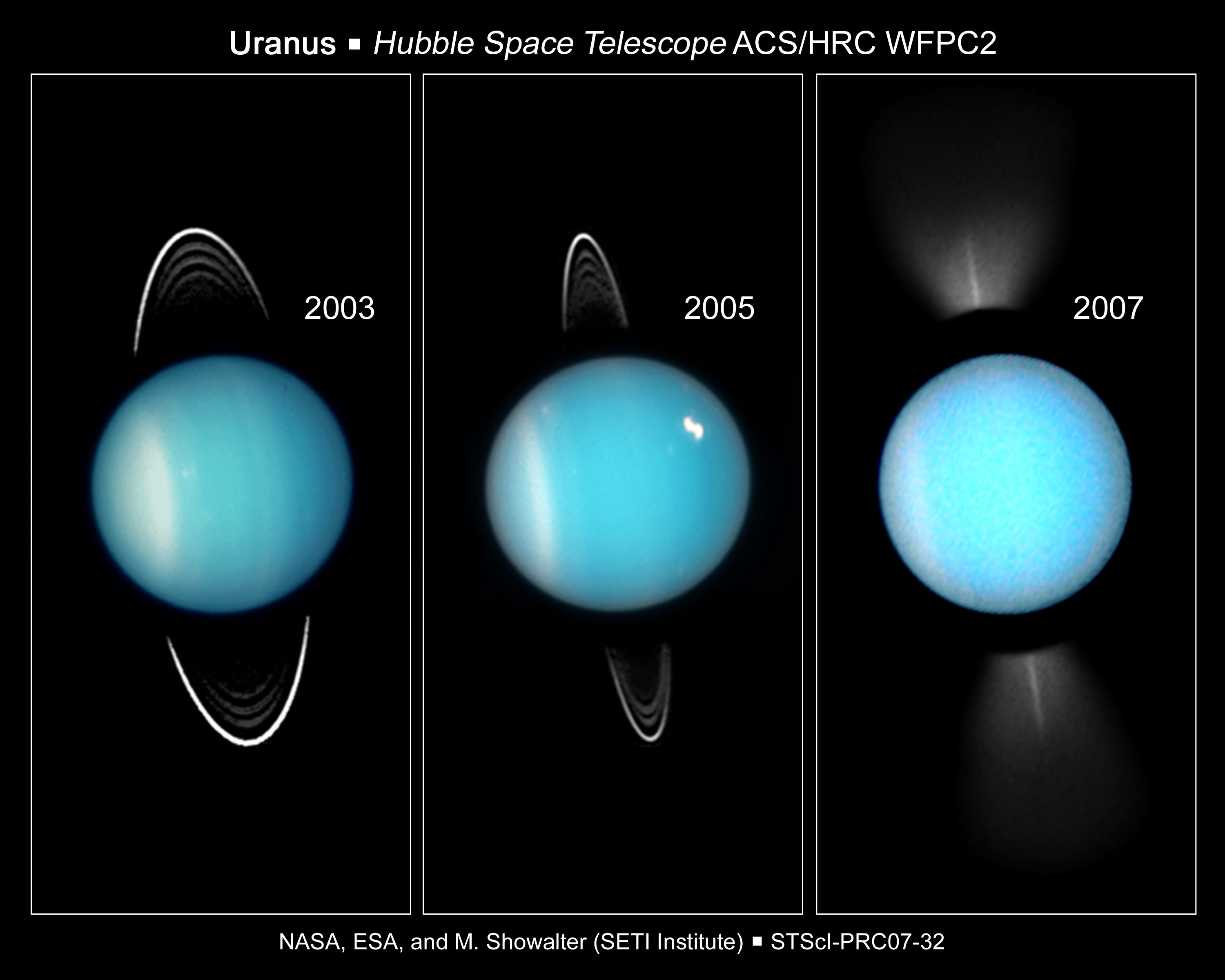
Temperature of Uranus Universe Today
The temperatures, pressures, and materials that characterize this planet are most likely too extreme and volatile for organisms to adapt to. Size and Distance With a radius of 15,759.2 miles (25,362 kilometers), Uranus is four times wider than Earth. If Earth was the size of a nickel, Uranus would be about as big as a softball.

Range of possible temperature profiles in the tropospheres of Uranus... Download Scientific
Uranus is the seventh planet from the Sun and is considered an ice giant because it is largely made up of water, ammonia, and methane in solid form. Like all the other planets, Uranus was likely formed in a massive, ancient cloud of gas, dust, and ice that collapsed into a spinning disc.
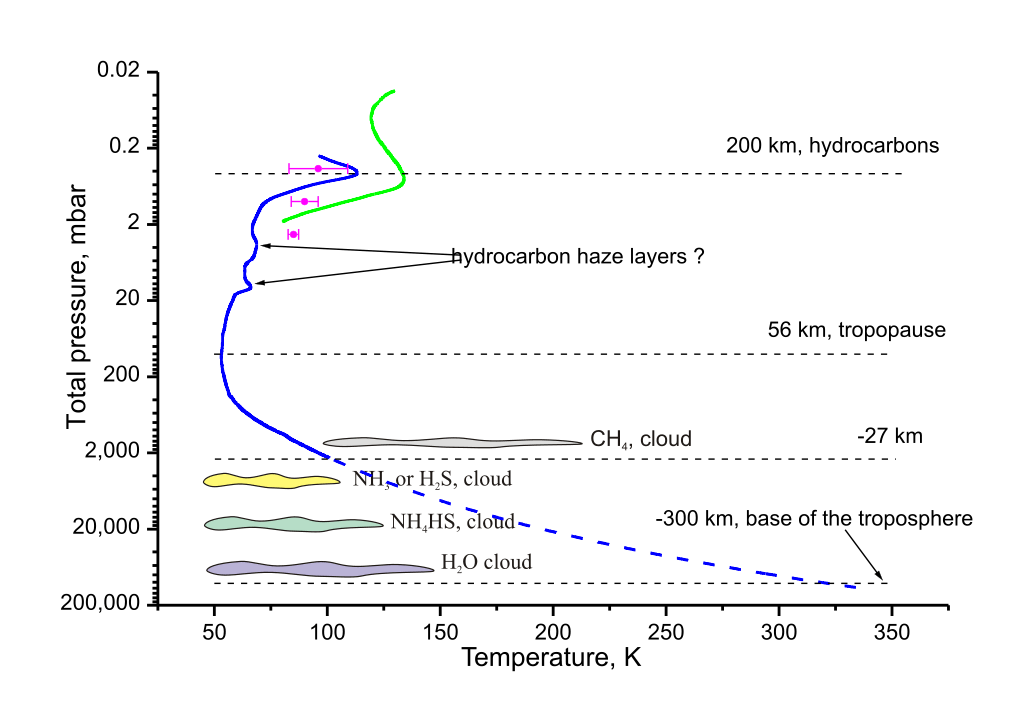
The Uranus Universe Today
Basic astronomical data Arrive at Uranus with Voyager 2, know its discoveries, and see close-ups of Miranda Voyager 2 arriving at Uranus after a five-year journey from Saturn, January 24, 1986. See all videos for this article

PPT Uranus PowerPoint Presentation, free download ID2144298
A narrow band straddling the latitudinal range from −45 to −50 degrees is the brightest large feature on Uranus's visible surface. [3] [7] It is called a southern "collar". The cap and collar are thought to be a dense region of methane clouds located within the pressure range of 1.3 to 2 bar. [8]